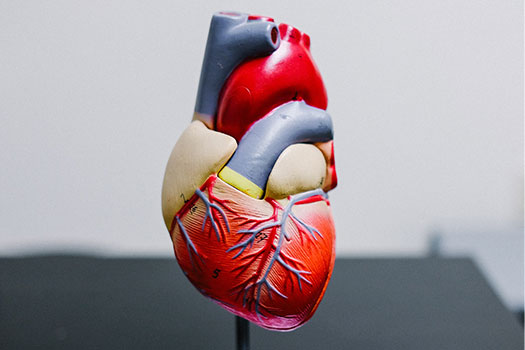Large UK Biobank study finds COVID-19 infection is linked to subsequent poor cardiovascular health
Researchers from Queen Mary University of London find that people requiring hospital admission due to COVID-19 have a high risk of subsequent cardiovascular problems.
Emerging evidence suggests that people who have had COVID-19 infection are at heightened risk of poor cardiovascular health. However, these studies tend to be mostly retrospective and include only a few selected health outcomes and exclude consideration of COVID-19 severity.
In a recent study, published in the journal Heart, researchers from Queen Mary University examined the relationship between subsequent cardiovascular events and COVID-19 using data from the UK Biobank. Their findings are important as they highlight the pandemics role in driving up rates of cardiovascular disease.
The team compared 17,871 patients with COVID-19 from the UK Biobank, infected between March 1, 2020, and March 1, 2021, with 35,742 uninfected controls from the UK Biobank matched based on age, sex, deprivation, BMI, ethnicity, diabetes, prevalent ischemic heart disease, smoking, hypertension and high cholesterol.
The cardiovascular outcomes considered included: heart attack; stroke; heart failure; atrial fibrillation (irregular heartbeat); VTE (blood clot in a vein); pericarditis (inflammation of the heart lining); death from any cause; death from cardiovascular or ischaemic heart disease.
Compared with their matched peers who were uninfected, those who did not require hospital admission for COVID-19 were nearly 3 times as likely to have VTE and more than 10 times as likely to die of any cause, whilst those who were hospitalised due to COVID-19 had higher risks of all the considered outcomes irrespective of potentially influential demographic and cardiometabolic factors.
They were more than 27 times as likely to develop VTE, more than 21.5 times as likely to be diagnosed with heart failure, and 17.5 times as likely to have a stroke. And the risk of newly diagnosed atrial fibrillation was nearly 15 times higher, that of pericarditis nearly 14 times higher, and that of a heart attack nearly 10 times as high.
The study found that most cardiovascular disease diagnoses, especially atrial fibrillation, VTE, pericarditis, and death from any cause occurred within the first 30 days of infection and among those admitted to hospital for COVID-19 as the primary reason. But heightened risk remained beyond 30 days, particularly for heart failure, atrial fibrillation, VTE, pericarditis and all-cause deaths, although to a lesser extent.
Dr Zahra Raisi-Estabragh from Queen Mary University of London said: "Our findings highlight the increased cardiovascular risk of individuals with past infection, which are likely to be greater in countries with limited access to vaccination and thus greater population exposure to COVID-19.
"Such risks are almost entirely confined to those with disease requiring hospitalisation and highest in the early (first 30 days) post infection period."
More information
- Raisi-Estabragh Z, Cooper J, Salih A, et al Cardiovascular disease and mortality sequelae of COVID-19 in the UK Biobank, Heart Published Online First: 24 October 2022. doi: 10.1136/heartjnl-2022-321492.
- Not to be sneezed at: cardiovascular disease after COVID-19 infection,
